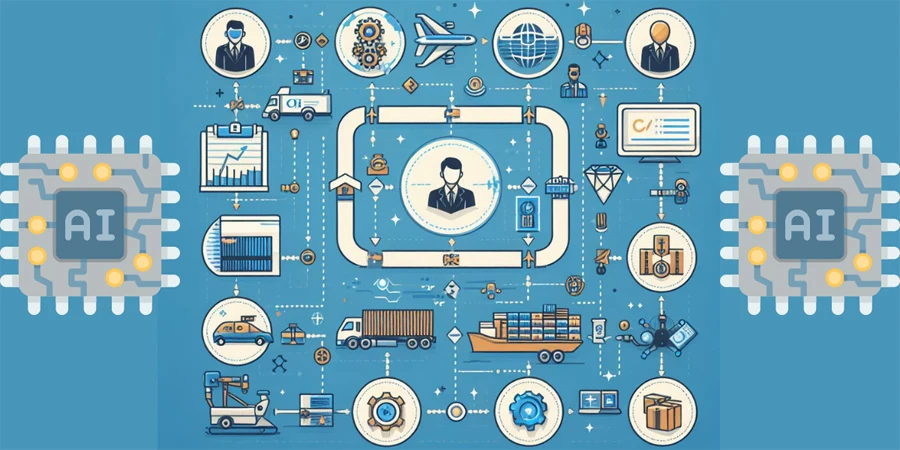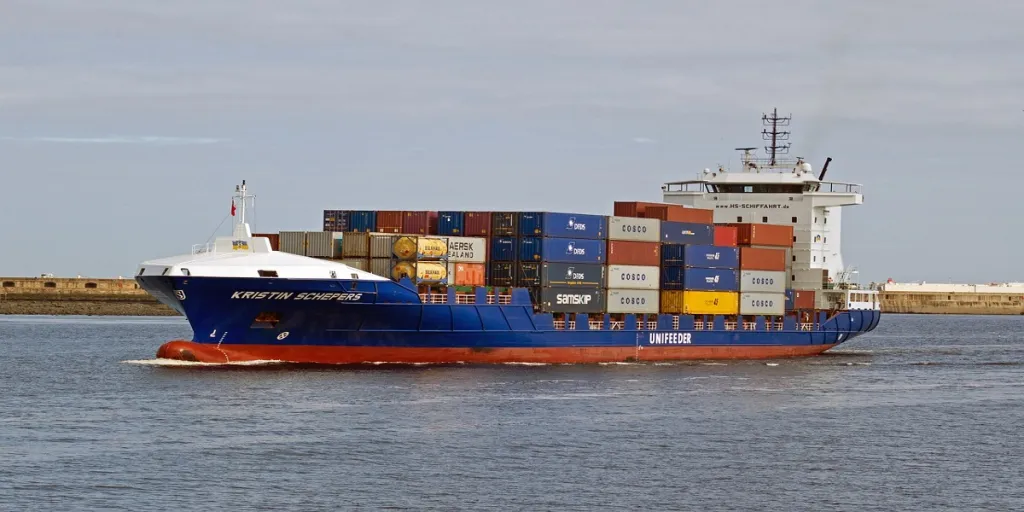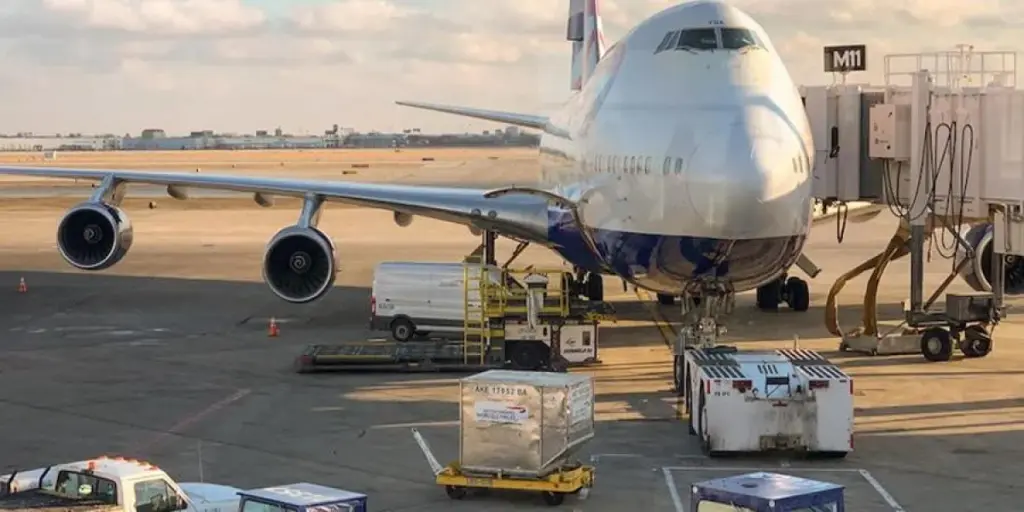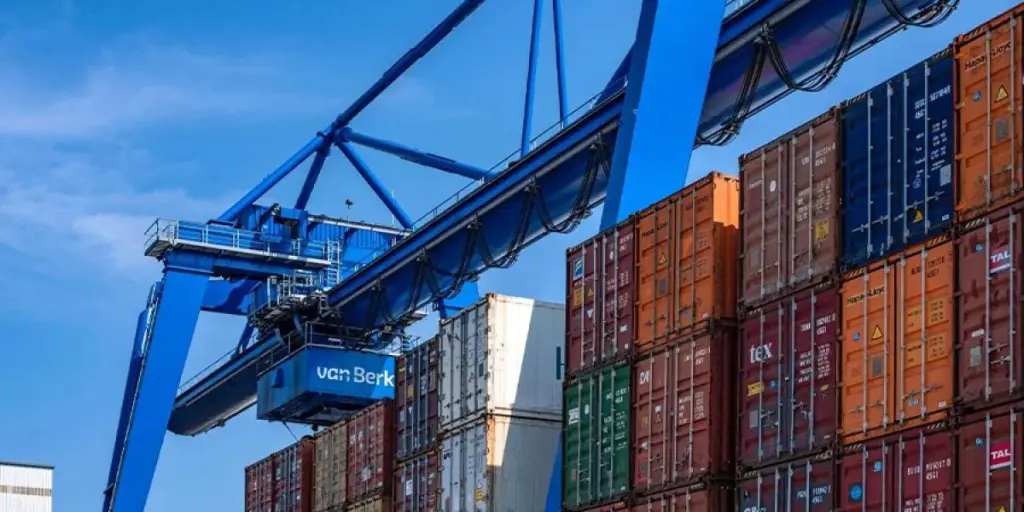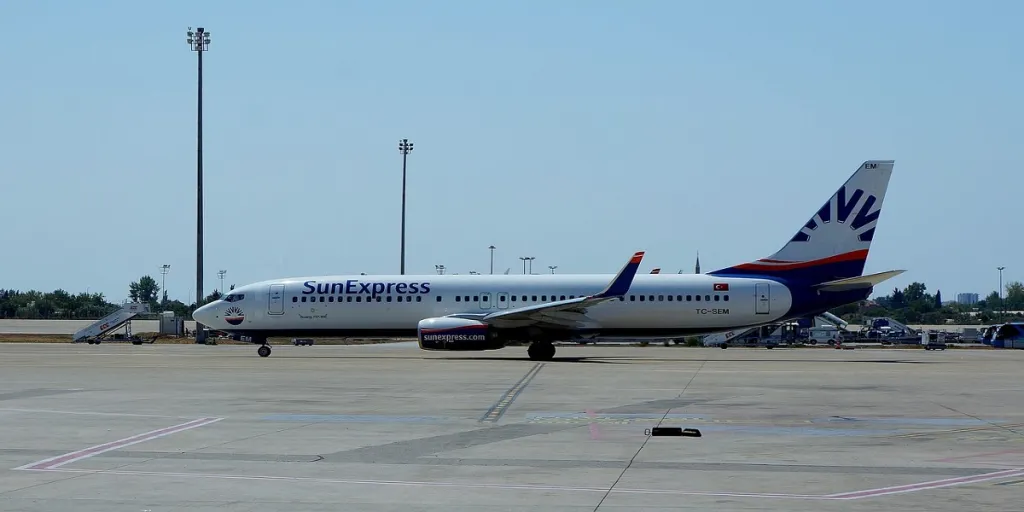It’s no surprise that artificial intelligence (AI) is disrupting every aspect of global supply chains. For example, at the Port of Qingdao in China, a modular AI-driven inspection system has been installed on the Skyrail to scan containers as they are transported along the Skyrail route.
The system processes and analyzes X-ray images for irregularities or specific goods without the need for intrusive, time-consuming manual screening. This system not only saves significant time but is also cost-effective, saving around USD 100 per container in dispatching costs.
The field of customs brokerage is not exempt from the impacts of AI, particularly generative AI. This subset of AI involves creating new data instances – these can be images, music, speech, or text – using patterns learned from existing data.
The customs industry can be revolutionized with such technology to facilitate faster clearances, lower costs, and improved accuracy and compliance. This trend is confirmed as the World Customs Organization (WCO) Technology Conference of 2023 emphasized the profound commitment by governments worldwide to adopt AI in customs operations.
So, how exactly can generative AI disrupt customs brokerage? And what are some of the real-world applications of AI in customs clearance? Continue reading and prepare to have your mind blown as we explore the answers to these questions!
Table of Contents
1. What is the meaning of customs brokerage?
2. 5 disruptive generative AI applications in customs brokerage
3. Can generative AI completely take over customs brokers?
What is the meaning of customs brokerage?
Customs brokerage is the service of clearing goods through customs for importers and exporters, ensuring that all laws are followed and tariffs or taxes are paid. It simplifies the complex process of moving goods across international borders.
Customs brokers, who carry out this service are licensed private individuals or entities that act on behalf of businesses to clear shipments through customs barriers. This includes preparing and submitting documentation required to authorize or clear a shipment, calculating and paying duties and taxes, and facilitating communication between government authorities and the importing or exporting entity.
While it’s generally possible for businesses to clear customs and handle import/export procedures on their own, customs brokers greatly simplify and facilitate these processes with their experience and specialized knowledge. Customs brokerage firms provide more services than merely filling out paperwork and classifying products. These services include:
- Regulatory compliance: Customs brokers facilitate adherence to international trade rules and local regulations, ensuring that all documentation and procedures align with the latest legal requirements.
- Risk assessment: Customs brokers analyze and identify potential risks in the supply chain, offering strategies to mitigate these risks and ensure the smooth transit of goods across borders.
- Trade consultancy: Providing expert guidance on maximizing trade efficiency and compliance, customs brokers offer insights into trade agreements, tariff classifications, valuation, and market entry strategies.
- Freight forwarding: While not their primary role, many customs brokers also offer freight forwarding services or partner with freight forwarders to provide an end-to-end logistics solution.
- Technology solutions: Customs brokers employ advanced software and digital tools to streamline customs clearance processes, automate data entry, and provide visibility into the end-to-end supply chain.
5 disruptive generative AI applications in customs brokerage
While it is undeniable that customs brokers possess irreplaceable expertise in managing all legal requirements and customs laws, sometimes even specializing in a particular industry or product type, the process of customs clearance itself is both tedious and prone to errors.
Mistakes such as incorrectly assigning the applicable Harmonized System (HS) code on an import declaration or overlooking the most recent clause in a trade agreement are not uncommon.
Generative AI has the potential to organize and manage the complex data and extensive paperwork required in customs brokerage and to automate repetitive tasks. “How is that possible?” one might ask. To answer this question, let’s explore five practical applications of generative AI in customs brokerage services.
1. Automated generation of customs documentation
Customs brokerage is characterized by a sheer volume of paperwork. The documentation required for customs clearance ranges from packing lists and commercial invoices to certificates of origin, all of which demand a degree of precision and compliance that can be time-consuming.
The Natural Language Processing (NLP) models of generative AI can be trained on vast datasets of paperwork and generate templates for different types of customs documentation. When fed with specific data inputs—including product descriptions, shipment details, and information on buyers and sellers—the AI is capable of filling these templates accurately.
A real-world example of automated documentation is iCustoms’ use of generative AI in its Intelligent Document Processing (IDP) module. This module scans, extracts, and processes data from customs documents, auto-filling customs declarations with a claimed 99% accuracy in seconds. This significantly reduces time spent on manual data entry, cross-referencing, and error correction.
2. Real-time updates on customs regulations
What is more challenging than the tedious task of filling out paperwork? For customs brokers, keeping up to date with changing international trade regulations is certainly a nightmare. Manually navigating through the ever-changing laws and agreements can be a difficult process.
Fortunately, generative AI systems can be designed to continuously scan and monitor a wide range of sources, including government databases, official journals, and international trade platforms, for any updates on import/export regulations. When new information, such as updates on tax rates for specific products, is identified, businesses can be promptly notified with summaries or detailed reports of the latest changes.
Let’s say a furniture exporting company engages in international trade. Consider a scenario where a new import tax on certain types of oak wood has been introduced by a country that the company frequently exports to.
An AI system can detect this information and immediately generate a clear, concise report detailing the tax changes. The company can be notified of these changes as soon as they occur, enabling them to adjust their pricing strategy, negotiations, and operations well in advance.
3. Predictive analytics for tariff and customs duties
Manually identifying and assigning the correct Harmonized System (HS) codes, a worldwide standardized system of names and numbers for classifying traded products, to each product is labor-intensive. Moreover, the margin for error in manual HS classification can be high.
A misclassified product may lead to audits, penalties, and fines by customs authorities. Generative AI can automate this process and match product descriptions and features to their correct HS codes in global databases.
For instance, the BACUDA (short for “BAse CUstoms DAta”) team, which is a group of experts organized under the auspices of the World Customs Organization (WCO), developed an AI tool that can be used to automate HS classification.
This tool analyzes and interprets the commercial descriptions of products, and then compares that with the similar input data of historical products to accurately predict HS codes. But that’s not it! Generative AI algorithms can even predict and calculate applicable customs duties and taxes for various shipments, considering current regulations and trade agreements.
Assume a company plans to ship a consignment of milled rice from Thailand to the United States. Once the AI tool has determined the HS code, in this case, 1006.30.10 (semi-milled or wholly milled rice), it can look up the United States’ Most Favored Nation (MFN) tariff rates for this type of product.
Using this data, it then calculates the estimated duty applicable for the shipment based on its commercial value, which is itself extracted from the AI-generated commercial invoice. Does it sound too good to be true? Don’t just take our word for it. Check out this AI Calculator developed by iCustoms and see how you can estimate the full landed cost of a shipment, including all customs duties, taxes, and fees.
4. Streamlining customs clearance workflow
If generative AI can auto-generate the necessary documentation for customs clearance, execute automated compliance checks, and accurately compute tariffs and taxes, it can completely revolutionize customs brokerage by streamlining and optimizing the entire process from A to Z.
From pre-shipment procedures such as product classifications and obtaining necessary licenses and permits, through to clearance and post-release tasks like coordinating transport delivery, AI can map out the entire workflow in a sequenced manner.
AI can even assist with freight forwarding and determine the optimal transportation mode based on various factors, such as the size and weight of the shipment and the most efficient routes. Consider, for instance, KlearNow.AI‘s intelligent platform, which comprehensively manages all aspects of the customs brokerage workflow to ensure an efficient, compliant, and hassle-free clearance process.
This AI platform can process all the required shipment documents and also assist in selecting the best freight forwarding options, as well as coordinating transport. Upon arrival of goods at the port, the platform streamlines the submission of entry declarations to customs authorities. After the goods have cleared customs, the platform offers real-time merchandise tracking.
5. Risk assessment and fraud detection
The generative AI applications in customs brokerage we’ve discussed so far predominantly focus on the perspective of customs agents and importers/exporters. However, AI can also help customs authorities in risk assessment and fraud prevention.
Generative AI models can be trained using extensive datasets of historical customs declarations featuring instances of confirmed fraud or security breaches, including attempted smuggling. Through this training, AI models learn to identify anomalies or patterns suggestive of deceptive customs declarations or fraudulent incoming shipments.
Consider, for instance, how the U.S. Customs and Border Protection (CBP) employs the Automated Targeting System (ATS) to automate the flagging of high-risk shipments. This AI-driven tool leverages historical data and current intelligence to assess and identify high-risk cargo that might be a security threat or involve smuggling, intellectual property rights violations, or other fraudulent activities.
Another example is how the World Customs Organization (WCO) employs the National Customs Enforcement Network (nCEN) system to detect irregular trade patterns. With the power of AI, WCO can analyze nCEN for various aspects of trade data, such as inconsistencies in shipment documentation, unusual routing of goods, mismatches between declared values and market values, and discrepancies in the declared weight or quantity of goods.
Can generative AI completely take over customs brokers?
From generating and auto-filling customs documents to assisting customs authorities in detecting fraudulent cargo shipments, generative AI appears capable of managing the entire workflow of customs brokerage services. This might lead businesses to wonder if the role of customs brokers will become obsolete due to AI.
However, similar to the initial thought that programmers would be replaced with the advent of conversational AI chatbots like ChatGPT, we ultimately observed an increased need for programmers. AI became merely a tool to aid them, rather than a replacement.
The same principle applies to customs brokerage. While generative AI can efficiently scrutinize a substantial volume of trade regulations for updates, it may struggle to interpret ambiguous clauses and regulation texts.
Such tasks require the involvement of human experts, particularly those with extensive experience in customs brokerage. Thus, the future of customs brokerage likely hinges upon the synergy between human insight and AI capabilities. Together, they can create a more efficient, accurate, and resilient customs process.
Are you interested in harnessing the power of generative AI? Explore Alibaba Cloud’s comprehensive solution for generative AI (GenAI) and gain access to a diverse selection of open-source foundational models (FMs). Deploy them to streamline customs brokerage processes, including cargo tracking, data reporting, payments, and more.
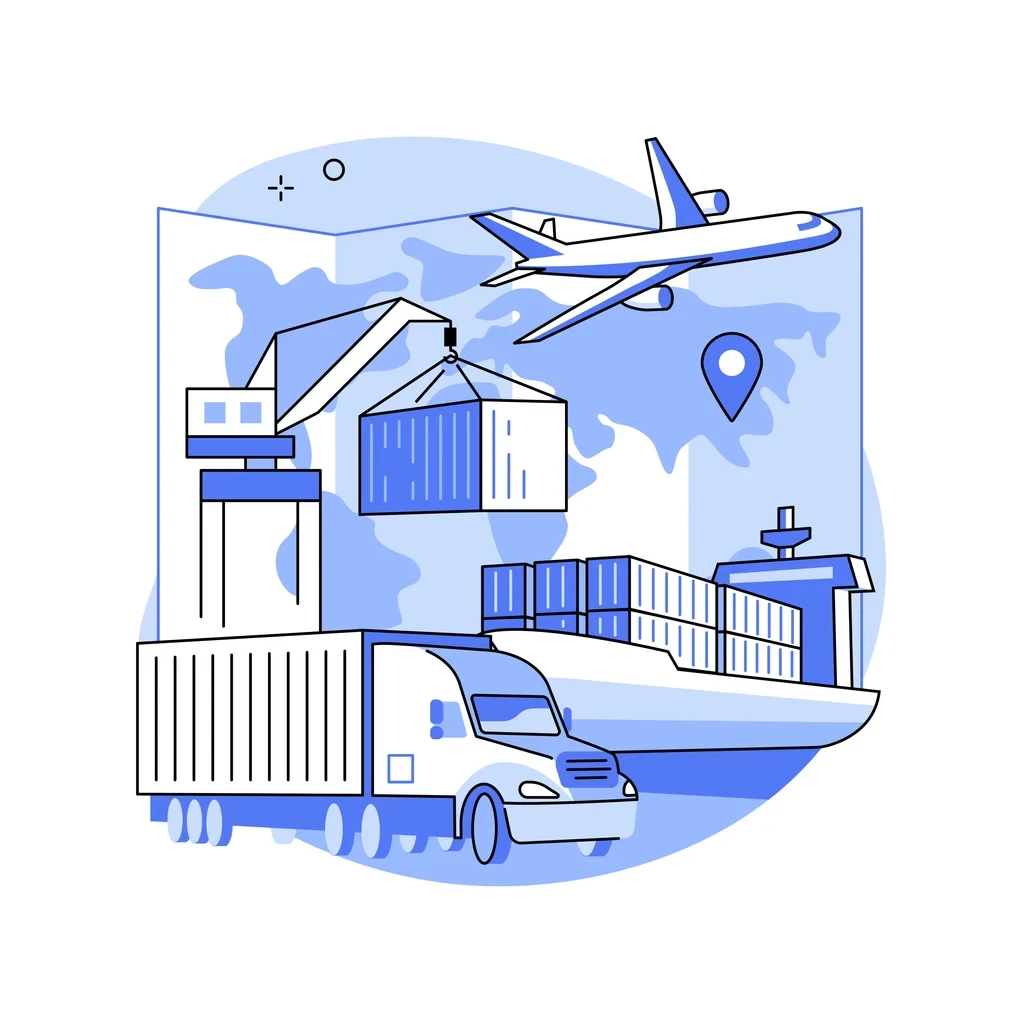
Looking for a logistics solution with competitive pricing, full visibility, and readily accessible customer support? Check out the Alibaba.com Logistics Marketplace today.
